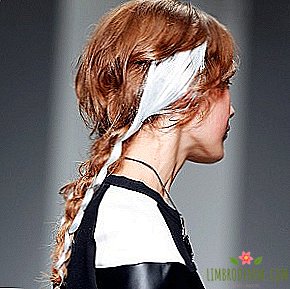“Be a Man”: What is really wrong with Gillette advertising

Dmitry Kurkin
Any big brand that hits social ads., enters the minefield. But even this does not explain the fire that erupted around the recent Gillette campaign, defying the stereotype “boy is boy” and criticizing bullying, harassment and other manifestations of toxic masculinity. Some of the angry commentators demanded that the company apologize for "insulting all men" and even called for a boycott of the brand, as well as all Procter & Gamble products, which Gillette bought fourteen years ago and have been trying to breathe life into it. For example, through social advertising.

The numbers are eloquent: the proportions of negative and positive feedback on the video at some point reached 10 to 1 (now they have settled at 4 to 1, but already after the authors of the video cleaned the comments and dislikes). But even the quantity, and quality is indicative. Not only residents of Dvach who were laughing at the "crazy feminists" at the same time were outraged, but now they are clearly not very comfortable in their place, or the British TV presenter Pierce Morgan, who really wants to be the main advocate of all masculinity. Here is the author of the Boston Herald (which is typical, a woman who "brings up two boys") advises Gillette directors to "focus on selling razors and leave men alone." Here is a Forbes columnist in a hurry to explain in the language of marketers why this social campaign doesn’t work exactly like advertising and derail the target audience of the brand. In a word, it also hooked on those who do not have a developed allergic reaction to the words "harassment" and "toxic". What is the reason?
Partly the effect of novelty worked: those who were not accustomed to the fact that advertising could educate, criticize, and sometimes degrade dignity reared up - and then, if they had heard it, they betrayed, and their own. Commentators complain about inappropriate generalizations (they say, not all men are such, why smear them all with a single shaving brush), accuse campaign authors of hypocrisy and conjunctuality (they say, for thirty years you have sold to consumers that very masculinity, and now, in times of #MeToo , it is stigmatized) and accused of sexist attacks on its own target audience. They are not accustomed to this attitude from advertisers.
As regards the conjuncture, one can probably agree, although it rather speaks in favor of the authors of the new campaign: they are not trying to pretend that the world around them has not changed in the thirty years that have passed since the invention of the slogan "Better for a man is not." Is it so bad - especially when there is a bubble nearby, in which the norm is not a dialogue about "masculinity", but a burning copywriting creative like "I did not order, but donated"? Tearing at the beginning of the video a poster with the same slogan, the company as it were sprinkles ashes on its head, apologizes - they are to blame, have corrected. And the authors, who believe that a man in advertising was indiscriminately turned into a bully and a rapist, the authors will surely answer: no, we just protect some men from others.
Not to stand aside, to protect the weak, to take responsibility, to act - everything that the Gillette campaign calls for has been for a thousand years, as noted in the gender tables
The accusations of attacking masculinity are all the more surprising because in the slogans of Gillette, if you look closely, there is absolutely nothing that would not have already been fixed in any of the unwritten sets of rules of life of the “real man” (not to be confused with the “Code of the brother” Barney Stinson ). Not to stand aside, to protect the weak, to take responsibility, to act - everything that the Gillette campaign calls for has been for a thousand years, as noted in the gender tables. "To be not just a father, but to be an example" a few years ago, Russian pop music was recommended (in a song where the stereotype sits on a stereotype and drives a stereotype). So where are the attacks, if the movie, in fact, pronounces all the same terms of "be a man"?
If the campaign Gillette and annoying, so it is his frontal mentoring. And the trouble of their fresh video is not in generalizations and stereotypes - social advertising almost always sins them, this is a common drawback of the genre, but the fact that people do not really like being taken for fools and so righteously teach righteousness (and Yutube literally teaches "to say the right things, to behave correctly"). Especially when the commandments come from marketers, whose ultimate goal, with all the possible sincerity of the social promise, is to sell more machine tools and shaving foams (critics did not fail to recall that Gillette has been sinking in the market for many years).
Big brands are not the first time trying to ride the current agenda - and not the first time they are fake when they do it. Two years ago, PepsiCo released a video in which Kendall Jenner with a can of soda heads a column of demonstrators; then, when they were pointed to an obvious puncture (it’s a sin to parasitize on the protests, they are not a glamorous show and do not come from a good life at all), apologized and removed the advertisement.
A Gillette spokesman has already assured that squalid criticism did not come as a surprise to the company: “We expected the debate - discussion is necessary. In the end, this is the most important thing - to start a conversation.” And the truth is that the conversation is important, and for the sake of his stimulation to put his image on the line (or, as the Telegraph columnist put it, “to risk razor-throat”) is noble in its own way. The only bad thing is to pretend that you started this conversation.
PHOTO: weintel - stock.adobe.com




